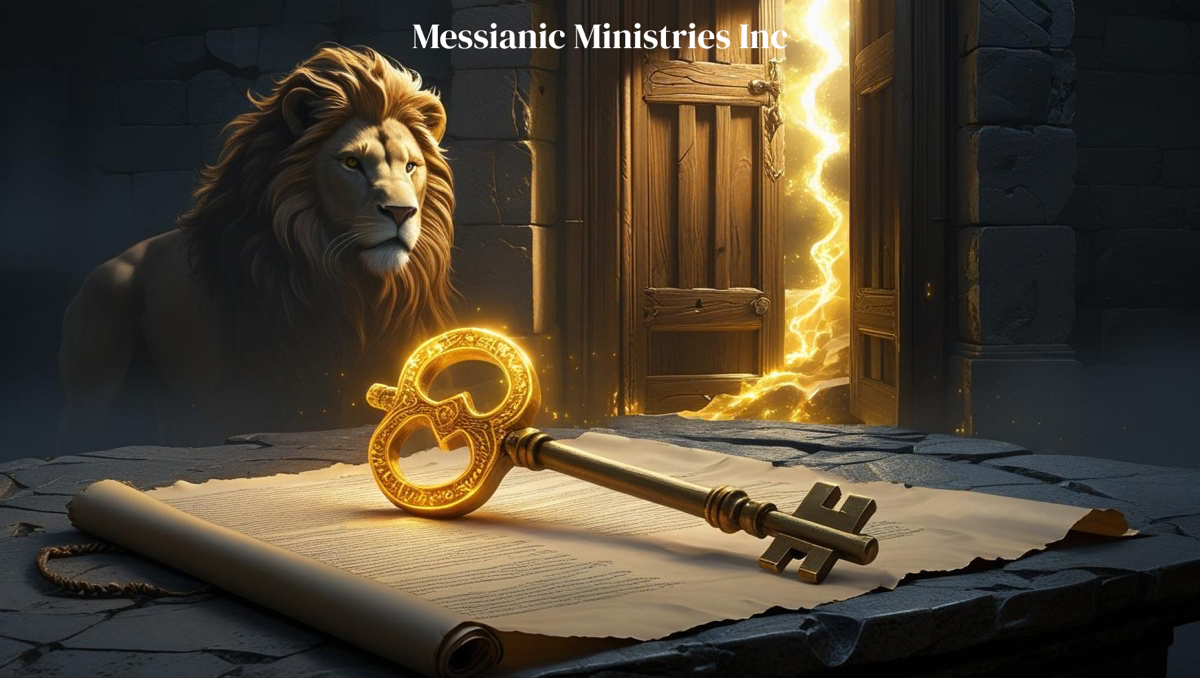The Key of David
Revelations 3:7
This proclamation is directed to the assembly in Philadelphia—a loyal contingent. The speaker is Yeshua, characterized by Messianic authority: sacred, authentic, and holding the “key of David.” This statement references Isaiah 22:22, where authority is conferred upon Eliakim, a servant of the Davidic lineage. Yeshua now possesses the eternal authority to govern, to provide access, and to close what no one else can open.
This key embodies governmental control, ecclesiastical access, and regal authority. For the Messianic believer, the “key of David” represents not only Yeshua’s Davidic heritage but also His authoritative right to grant His adherents access to the Kingdom promises bestowed upon David—an everlasting throne, just dominion, and an unwavering covenant (2 Sam. 7:12–16).
The open door signifies a heavenly opportunity—access to kingdom purpose, intimacy, and service. No might of hell can shut what He has opened. No persecution, no political edict, nor religious gatekeeping can obstruct what He has rendered accessible.
This also challenges every idea of control. Human systems wrongly impose restrictions, yet the Messiah transcends them. To the devout, particularly those in precarious or oppressed circumstances, He provides reassurance: “Behold, I have set before thee an open door, and no man can shut it” (Rev. 3:8). He is the sole Door (John 10:9).
• Key of David: Messianic authority founded in the Davidic covenant.
• Open and Shut: The Messiah dictates access—no one can supersede His edict.
• Faithful Remnant: The promise pertains to a community distinguished by fidelity rather than magnitude.
• Kingdom Access: The key symbolizes spiritual authority and covenantal entry.
• Divine Certainty: No adversarial force can annul what God decrees.
#Christianity #jesus #christiantiktok #bible #foryou #cogic #cogbf #cog #apostolic #seventhdayadventist #messianicministriesinc #allnations #fgbcf #tiktok

